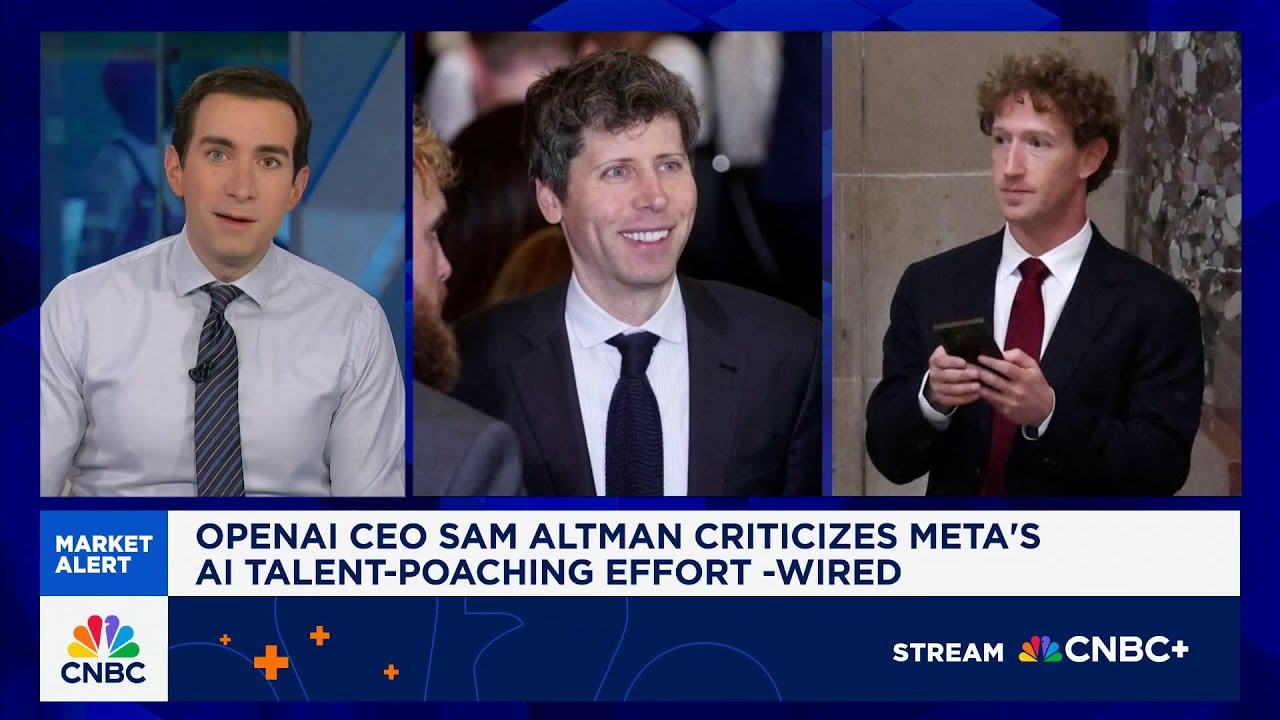OpenAI CEO Sam Altman criticized Meta’s aggressive AI talent-poaching efforts, describing some recruits as “mercenaries” and warning of potential cultural issues, while emphasizing OpenAI’s confidence in its long-term value and employee retention through competitive compensation and share incentives. Meta’s multiyear offers, reaching up to $300 million, highlight the intense competition for AI talent, raising concerns about employee motivation and loyalty amid the ongoing battle to lead AI innovation.
In a recent discussion on CNBC’s Squawk Box, OpenAI CEO Sam Altman addressed Meta Platforms’ aggressive efforts to recruit talent from OpenAI. Altman, in a memo obtained by Wired, acknowledged that while Meta has successfully hired some skilled individuals, they largely missed out on OpenAI’s top talent, having to settle for candidates further down their preferred list. He expressed skepticism about the quality and loyalty of these recruits, referring to some as “mercenaries,” and warned that such hiring tactics could lead to cultural issues within Meta.
Altman also highlighted that OpenAI is currently reviewing its employee compensation packages to remain competitive. He emphasized his belief that OpenAI’s shares hold significantly more long-term value compared to Meta’s publicly traded stock, suggesting that employees have more to gain by staying with OpenAI. This stance underscores OpenAI’s confidence in its growth trajectory and the potential upside for its team members.
The report revealed staggering figures behind Meta’s recruitment offers, with some scientists and engineers being presented multiyear deals worth up to $300 million. Certain individuals reportedly received $100 million upfront in the first year alone. These lucrative offers underscore Meta’s determination to rapidly build its AI capabilities, particularly as it seeks to advance its large language model, LLaMA, to compete with industry leaders.
Commentators on the show expressed mixed feelings about Meta’s approach. While the high compensation packages are undeniably attractive, there were concerns about the impact on employee motivation and company loyalty. The argument was made that when paychecks are guaranteed regardless of performance, it might diminish the drive to work hard or innovate. Additionally, the ease with which highly paid employees could jump ship for even better offers raises questions about long-term retention.
Overall, the situation highlights a fierce competition for AI talent between major tech companies, with Meta aggressively pursuing top researchers to bolster its AI ambitions. Meanwhile, OpenAI is striving to maintain its culture and retain its best people by offering competitive compensation and emphasizing the potential value of its shares. The unfolding talent war will likely have significant implications for the future development of AI technologies and the companies leading the charge.
